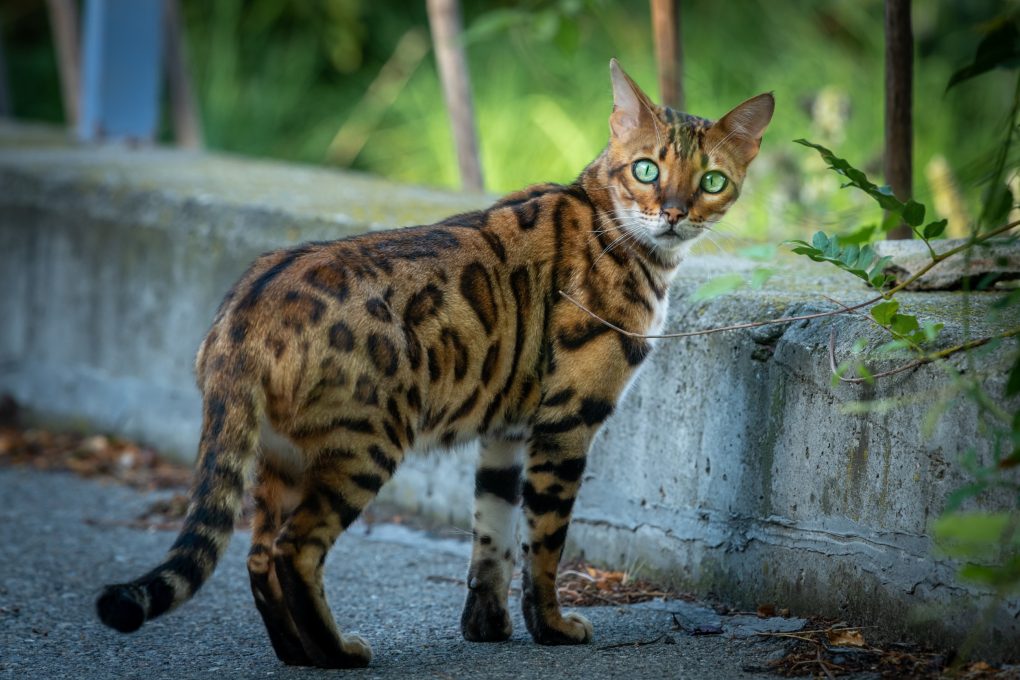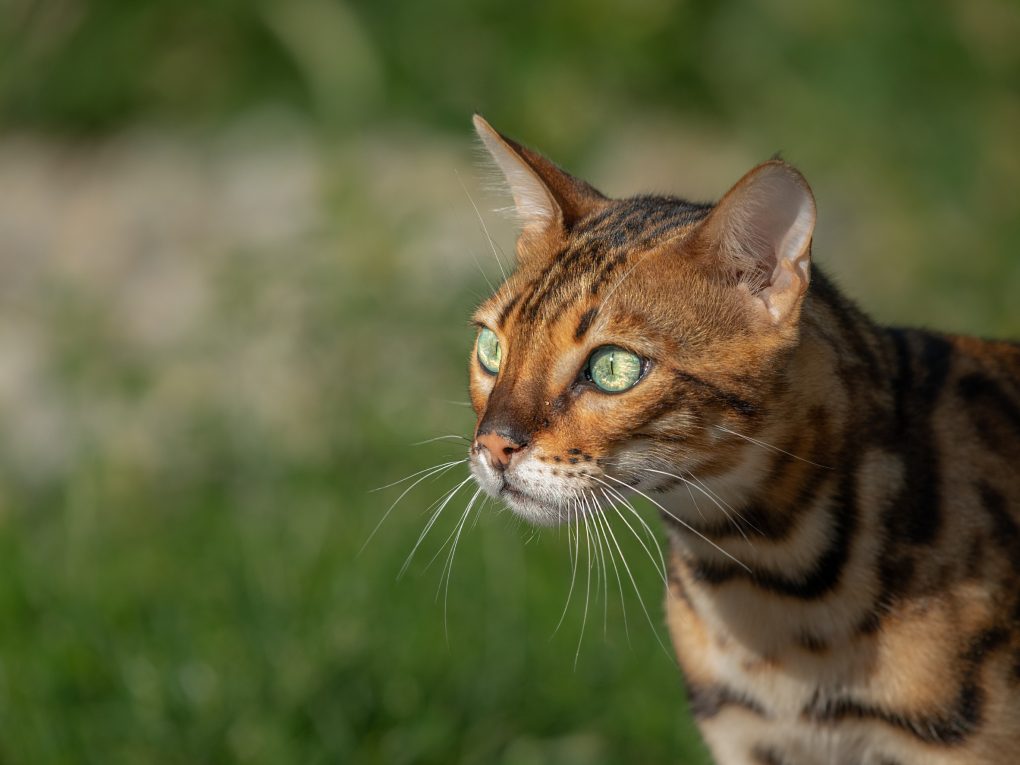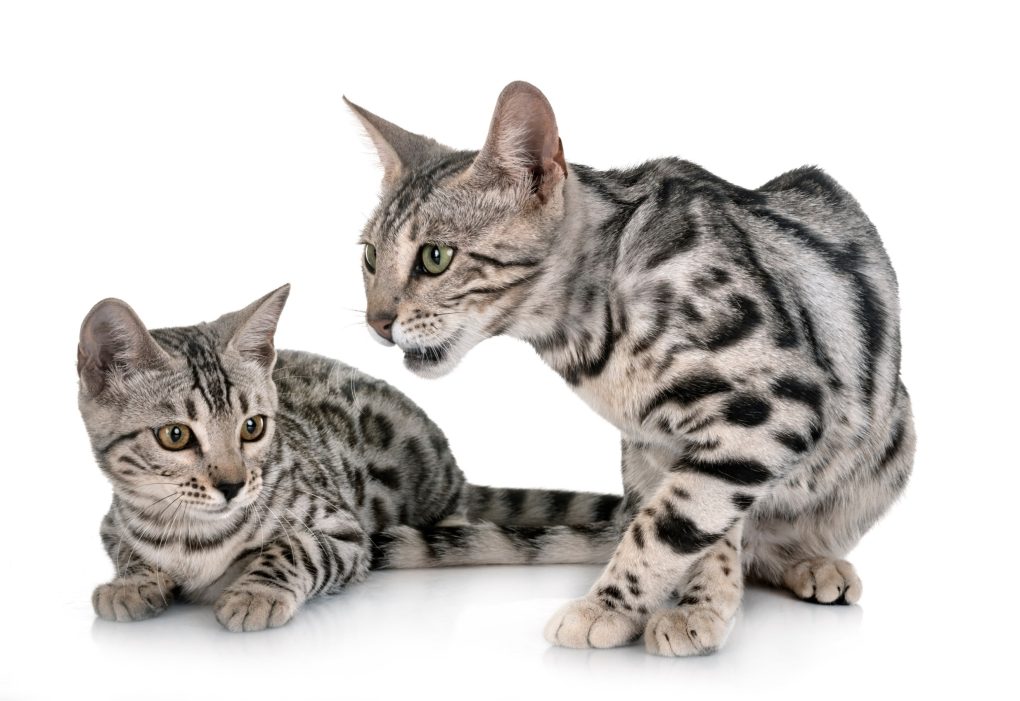Are Bengal Cats Outdoor Cats: A Guide in Deciding to Keep Your Cat Indoors or Outdoors
Yes, Bengal cats can be kept as outdoor cats, but they are generally considered indoor cats because They are a domestic breed and not well-suited to living outside. They are not as hardy as feral or outdoor cats and can be more susceptible to disease, injury, and other hazards.
Bengals are very active and curious cats, and they love to explore, jump and climb, so they need a lot of space to run around and play; it’s essential to provide them with an appropriate environment. They need a lot of interactive toys, scratching posts, and climbing structures to keep them mentally and physically stimulated.


Considering letting your Bengal cat outside, consider the risks and take steps to protect them. This may include providing them with a safe and secure outdoor enclosure, keeping them on a leash or harness when outside, and keeping them up to date on vaccinations and other preventive care.
Table of Contents
Reasons You Should Let Your Bengal Cat Go Outside
More Physical Activity Means Constant Entertainment
Bengal cats thrive on physical activity, so they must regularly be allowed outside to stay entertained and healthy. If you can get your Bengal cat outside, it will provide them with constant entertainment and exercise.
Outside can give them more opportunities to engage in natural, healthy behavior. For example, outdoor cat activities, such as catnapping, jogging, and hunting, can help keep your cat physically fit and active.
Being Out and About Improves Socialization and Mental Health
Bengal cats are friendly and rarely suffer from anxiety or depression, but letting your Bengal cat outside can further help improve its socialization skills and boost its confidence.
Exposing the cat to new sights, sounds, and smells can help it become more comfortable in new situations and build a positive relationship with the outside world. Such outdoor play helps keep your Bengal cat healthy and fit.
Regular outdoor exposure can also help improve a cat’s mental health and overall well-being. For example, when you allow your Bengal cat to go outside, you provide the best possible environment for a happy, healthy life.
What You Should Do When Keeping a Bengal Cat Outside
Before letting your Bengal cat outside, it’s essential to consider its needs, environment, and lifestyle. For example, most Bengal cats are not naturally outdoor cats and require a safe indoor environment as part of their routine.
If you plan to let your Bengal cat outside for any reason, make sure to have the cat vaccinated for panleukopenia and rabies. These vaccines are essential for Bengal cats because they can carry and spread these diseases.
Additionally, Bengal cats should be trained to come when called using a house training routine. In addition, you can create a positive association between the indoor environment and its calls.
Ensure to keep your Bengal indoors during extreme weather conditions such as thunderstorms or freezing temperatures. The cat may not enjoy being confined all the time indoors, but this will help prevent injury or illness.
Reasons You Should Keep Your Bengal Cat Indoors


Cars and Cats Are a Bad Combo
Cats are vulnerable to a range of accidents when not kept indoors. Cars are a significant hazard for outdoor cats; many cats are killed or seriously injured yearly due to car accidents. Cats are naturally curious and may not understand the danger of cars on the road, making them particularly vulnerable to accidents.
To prevent car accidents in cats, it is recommended to keep cats indoors as much as possible and supervise them when they are outside. It is also important to spay or neuter cats to reduce their urge to roam and to provide them with identification, such as a microchip, in case they get lost.
If an outdoor Bengal cat has been hit by a car, it is crucial to seek veterinary care immediately, as internal injuries may not be immediately visible. Symptoms of a cat being hit by a car may include limb fractures or dislocations, internal injuries such as bleeding or organ damage, head trauma, road rash or abrasions, and breathing difficulties.
Catnappers Are a Serious Threat
Catnapping is a severe threat to cat owners. Catnappers are criminals who target and steal cats for their furs. Cats are particularly vulnerable to catnapping because they are domesticated animals; however, Bengal cats, with their exotic looks and energetic personalities, can be more of a target for catnappers.
Cat owners must keep their cats indoors to protect them from becoming a victim of catnapping. If you allow your cat to spend time outside, ensure they have a secure, enclosed area to explore. This can include a fenced-in yard or a catio (an enclosed patio for cats).
Be aware of your cat’s whereabouts, and if you suspect someone is trying to steal your cat, report it to the police immediately. Remember that catnapping is a criminal offense, and it’s essential to immediately report any suspicious activity to the authorities.
Infectious Diseases, Toxins, and Parasites Lurk Around Every Corner


Cats that spend time outside are at risk of contracting various infectious diseases. Some of the most common include:
- Feline leukemia virus (FeLV): This virus is spread through close contact with infected cats and can cause various health problems, including cancer and a weakened immune system.
- Feline immunodeficiency virus (FIV): Similar to HIV in humans, FIV is a virus that attacks the immune system, making cats more susceptible to other infections.
- Rabies: Rabies is a virus that can be transmitted through the saliva of an infected animal, usually through a bite. Rabies is fatal if left untreated in cats.
- Ringworm: This fungal infection can cause skin irritation and hair loss. It is highly contagious and can be transmitted through direct contact with an infected animal or contaminated objects.
- Upper respiratory infections: Cats can catch common colds, flu, and other viral infections from other cats, which can cause sneezing, coughing, and other symptoms.
- Parasites: Fleas, ticks, and mites are common parasites that can infect cats and cause skin irritation and other health problems.
It’s important to note that indoor cats are not immune to these diseases and can catch them if they come in contact with an infected animal or by a flea or tick bite. Therefore, it’s essential to take your cat to regular checkups with a veterinarian and to keep their vaccinations up-to-date.
